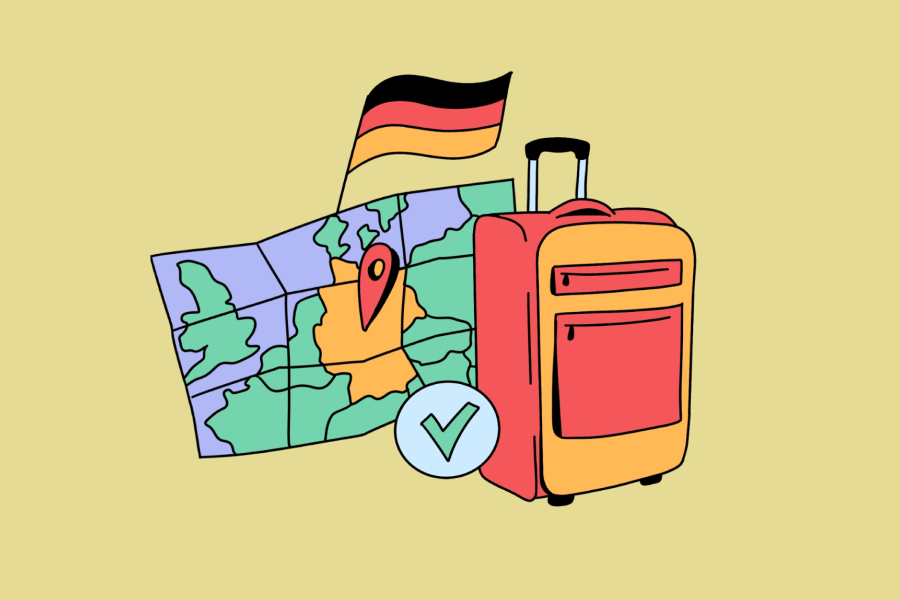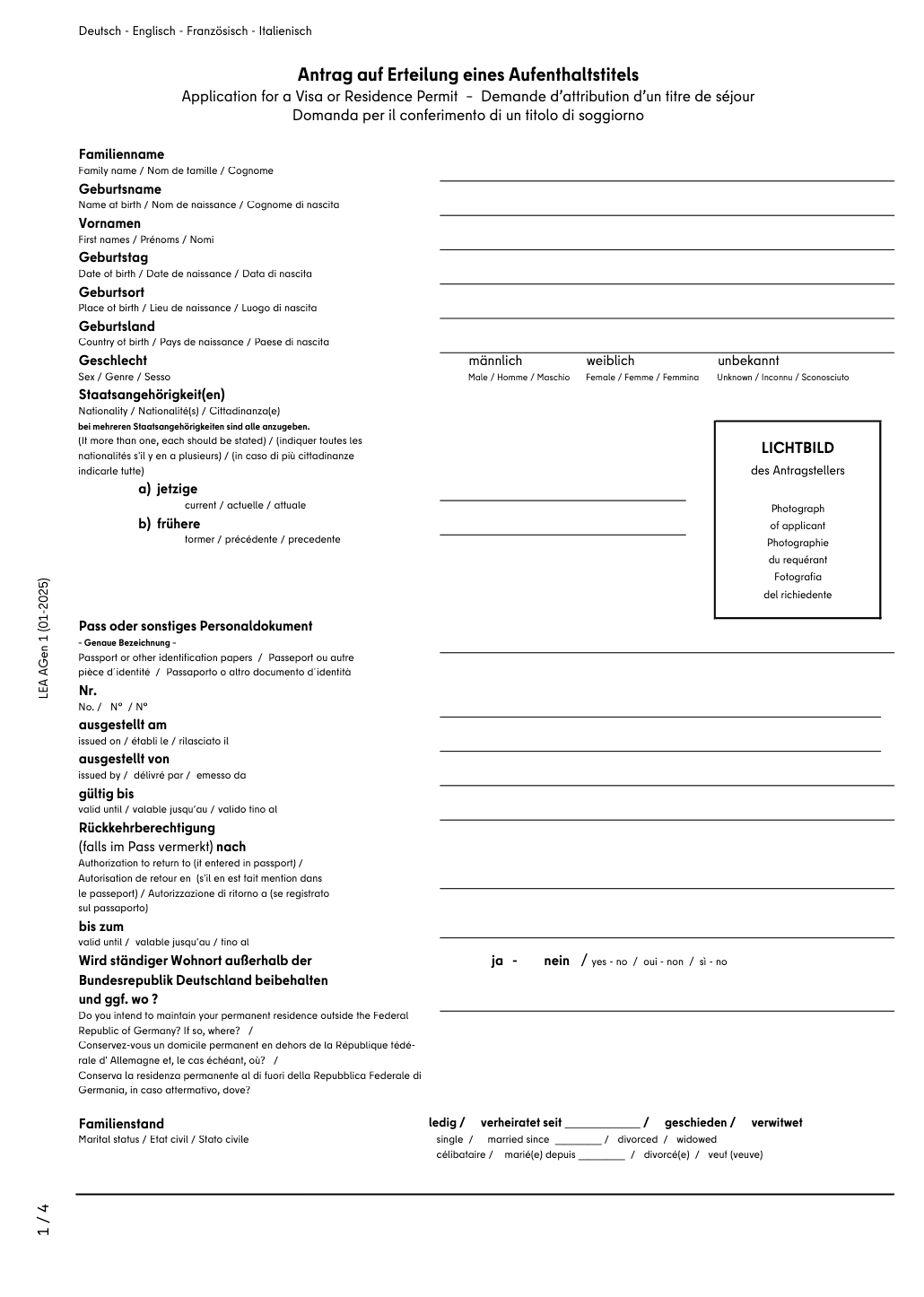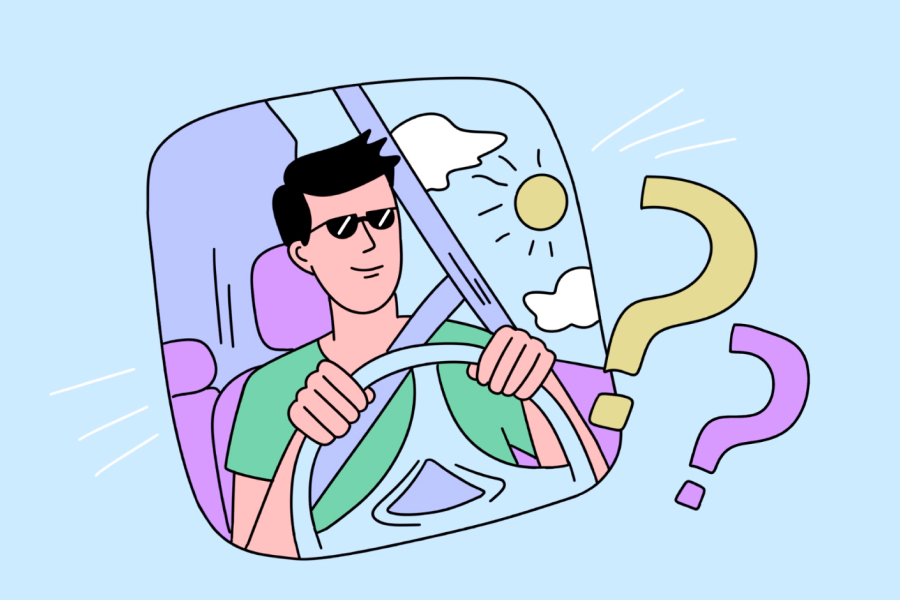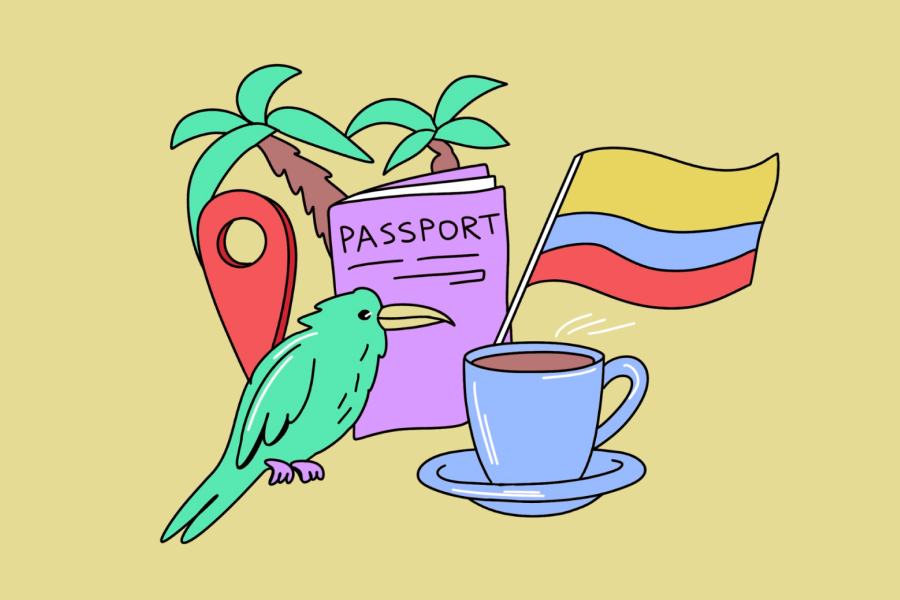Guide to Germany Digital Nomad Visa: Opportunities for Freelancers and Entrepreneurs
Learn about the digital nomad visa alternatives for Germany, including the requirements and application process.
November 20, 2025
November 20, 2025

Key Points
- Germany doesn’t have a digital nomad visa. To work remotely in Germany, you may apply for the freelance visa.
- Germany also offers a self-employment visa for entrepreneurs and those who want to start their own business in the country.
- Most people need to first obtain the entry visa and then apply for the freelance residence permit to work and live in Germany.
- To be eligible for a freelance visa and residence permit, you need to have a sufficient income, clients or prospective clients in Germany, health insurance, a legal address, and relevant professional licences.
- If you need an entry visa, you first apply at your local German embassy. When you enter Germany, you then convert the visa into a residence permit.
- The best cities in Germany for remote workers are Berlin, Munich, and Hamburg.
- Generally, freelancers only need to pay income tax and VAT.
Germany is one of the world’s top economies, so it’s no wonder that many foreign remote workers would like to move there. Although the country doesn’t offer a dedicated digital nomad visa, you can still apply for a permit to work and live there. To prepare this article, I used the official Make it in Germany website for qualified professionals, the Federal Foreign Office portals, international German missions websites, the Federal Office for Migration and Refugees website, the Platform for Founders, and the ServicePortal Berlin. Please refer to these and other official resources before making your application. Note that the conditions and requirements may change over time.
Read on to discover your visa options, requirements, and the application process.
Digital nomad visa alternatives for Germany
Unlike Spain or Portugal, Germany doesn't have a digital nomad visa. But don't get discouraged! If you want to come to Germany and work independently, you have two options:
- Freelance visa (Freiberufler)
- Self-employment visa (Selbständiger or Gewerbetreibender)
Here’s a quick table to understand the difference between the two and choose the option that is best suited for you:
In this article, I’ll focus on the freelance visa. Apart from some differences that I’ll mention separately, all of the steps outlined are also relevant for the self-employment visa.
Who can apply for the German freelance visa?
German freelance visa (Freiberufler) is available for those working in so-called liberal professions (freie Berufe). There are a variety of occupations that fall under this category, such as:
- Healthcare professions: doctors, dentists, veterinarians, non-medical practitioners, physiotherapists
- Legal, tax, and business advisors: lawyers, notaries, patent agents, accountants, tax consultants, consulting economists, sworn accountants, tax agents
- Scientific and technical professionals: surveyors, engineers, architects, commercial chemists, pilots, software developers
- Professionals in media and linguistics: journalists, photojournalists, interpreters, translators, writers, language teachers
- Artists
Ultimately, whether a profession falls under the liberal category is decided on a case-by-case basis by a local tax office.
Professionals in some fields are required to have a licence to practice (e.g., doctors) and become members of their respective chambers. For example, architects must join the Chamber of Architects (Architektenkammer). To learn whether your profession is a regulated one and whether you need to become a chamber member, refer to the BerufeNet database (only in German).
German freelance visa eligibility requirements
On top of being in liberal professions, you also need to make sure that you meet other requirements:
- Have health insurance (a short-term travel insurance for your entry visa and then a permanent one to apply for the residence permit).
- Have a legal address in Germany.
- Show sufficient income that covers your rent, health insurance, and cost of living. This varies by city, and can range from €3,000 to €10,000 (from $3,475 to $11,585).
- Have German clients or prospective clients who intend to hire you when you become a permanent resident.
- Provide necessary licences for regulated professions like lawyers or doctors, or, ideally, have relevant experience or education if your profession is unregulated.
Additionally, if you’re older than 45, you must have a pension plan that can sustain you once you reach 67. In Berlin, you must either have a monthly pension of €1,565.03 ($1,813) for at least 12 years, or an asset amount of €225,364 ($261,082). Citizens of some countries, like Turkey and the United States, are not required to provide this information. Pension requirements vary by city, so learn the local requirements beforehand.
How to apply for the German freelance visa
There are two different documents you should be aware of if you’re a foreign citizen who wants to have a legal opportunity to live and work in Germany as a freelancer:
- A freelance entry visa is a long-stay national D visa needed for most people just to be able to enter Germany for the purposes of freelance work. It usually lasts from one to three months. Once you are in the country, you need to convert the entry visa to a residence permit to be able to stay and work as a freelancer.
- A residence permit is required for everyone, except for EU and Swiss nationals. This is a document that allows you to stay in the country and work as a freelancer. It usually lasts for up to 3 years.
The process for countries that require an entry visa
Digital nomads from other countries who would like to come to Germany to work remotely or freelance on-site need to apply for an entry visa at a German embassy in their country. It may typically last for three months. After you are in Germany, you need to apply for the residence permit within 90 days of your arrival.
Here are the steps to take in your home country to get an entr visa:
- Book an appointment at your local German embassy or consulate.
- Submit the required documents and pay the visa fee.
- Wait for your visa and pick up your passport from the embassy.
You may need to wait from one to three months before you can get a visa. Once you arrive in Germany, apply for the residence permit within 90 days:
- Register with the tax office and get a tax number (Steuernummer).
- Register your address at the residents’ registration office (Bürgeramt), providing the required documents: passport, registration form, rental agreement, move-in confirmation from the landlord, and civil status documents (birth and marriage certificates, for example).
- Book an appointment at the immigration / foreigners office (Ausländerbehörde).
- Pass an interview at the office, provide the necessary documents, and pay the fee.
- Wait for your documents to be processed and your permit to be issued.

You may need to wait several months to get the permit. Once you have it, you may be living and working in the country for 1 to 3 years. After your permit expires, you can renew it by submitting the same documents to the immigration / foreigners office. Eventually, freelancers can apply for permanent residency, usually after 5 years.
Those who are applying for the self-employment residence permit also need to register their business at the local trade office (Gewerbeamt) and obtain a trade licence. After that, you’ll also automatically become a member of the Chamber of Industry and Commerce (IHK) or Chamber of Crafts (HWK) for craftsmen. This membership costs an annual fee, usually €50-€70 ($58-$81).
The process for visa-free countries
EU, EEA, and Swiss nationals don’t need a visa to enter Germany and don’t even need a residence permit. After coming to Germany, they are only required to register their home address, register with the tax office, and obtain a tax number and a German health insurance after arrival.
Citizens of the United States, Canada, Australia, New Zealand, South Korea, Japan, and Israel may enter Germany without a visa. However, they need to get a freelance residence permit within 90 days after coming to the country, following the steps we’ve outlined in the previous section.
Required documents for the German freelance visa
The following documents are the same whether you apply for your entry visa or a freelance residence permit. You need to provide:
- Valid passport and biometric photos
- Completed visa application form (either for your visa or residence permit)
- Health insurance coverage
- CV or portfolio
- Fee payment
- 2 contracts or letters of hiring intent from German clients
- Proof of address and a rental lease confirmation from your landlord
- Proof of qualification (degree certificates, licences, training certificates, experience certificates, reference letters)
- Proof of income and a revenue forecast
- Business plan (a detailed description of your planned freelance employment)
- If you’re older than 45, evidence of adequate retirement benefits (whether a private plan or assets)
Living as a digital nomad in Germany
Your application process is finished, you’re working remotely and living as a digital nomad in Germany. The toughest part has ended, mission accomplished!

Now, let’s talk about other important factors in any German digital nomad’s life: places to live and taxes.
Best cities to live in
More than 14 million foreigners now live in Germany. I chose three German cities that are best for a digital nomad based on infrastructure for freelancers, prevalence of the English language, and ease of integration. Our top picks include Berlin, Munich, and Hamburg. Let’s take a quick look at each one.
Berlin
Berlin is the capital of the country and a popular destination for those seeking a vibrant cultural scene and an international community. Although it is important to learn German to comfortably live in the country, it is less necessary in Berlin. In most cases, you’ll be able to get by with English only.
I moved to Berlin on a Freelance Visa mainly because it struck a good balance between creative freedom and business stability. The process wasn’t exactly smooth — lots of paperwork, a few confusing translations, and about three months of waiting — but once approved, it felt worth it. I chose the freelance route since I consult with UK and EU companies remotely, and Germany’s tax setup for independents made sense long-term. The biggest pro? A strong digital infrastructure and a real sense of community among nomads. The con? Bureaucracy can wear you down if you’re not patient. My advice — show clear income proof, overprepare your documents, and expect at least one appointment where something’s “missing.”
{{William Fletcher}}
Berlin has many coworking spaces and startup hubs to support a digital nomad lifestyle and remote work. The average cost of living for one person (without rent) is €989.8 (or $1,148).
Munich
Munich is the capital of Bavaria and the center of Oktoberfest celebrations. It is famous for being one of the most luxurious cities in the country. With its greenery, historic architecture, and commitment to being walkable and bike-friendly, this city offers a high quality of living. In fact, Munich took 11th place in Mercer’s international quality of living city ranking.
The city has many coworking spaces for remote work, like a nearly 10,000 square meters big Design Offices München Bogenhausen. However, you would need to earn more to be able to sustain yourself, as the average cost of living for one is €1,044.9 ($1,212) per month.
Hamburg
What can a digital nomad expect from Hamburg? This city is a major port located on the Elbe River. Apart from being close to the water, it also has a lot of greenery. Hamburg is also a popular cultural destination and can showcase brick and neo-renaissance architecture.
Just as the other two cities, Hamburg has plenty of spaces for remote work, from cafes to dedicated hubs. It’s a little pricier to live in than Berlin, but not as expensive as Munich. One person needs to account for €1,031.2 ($1,196) without rent per month.
Taxes
The German tax system is complex, and the specific requirements vary by land and depend on the type of business registration and other parameters. Generally, freelancers in Germany need to pay several types of taxes:
- Income tax, ranging from 14% to 45%, depending on your profession.
- Solidarity surcharge of 5.5% for some very high earners (yearly income of €73,500 pr more for single tax filers and €147,000 for joint filers, or $85,091 and $170,182 respectively)
- Church tax of 8-9% for church members
- VAT returns of 19% (or 7% for certain services), which you need to add to the cost of your services and then submit to the tax office
If you are registered as an entrepreneur, you also need to pay the trade tax of 7-17%.
Conclusion
Although Germany doesn’t have a digital nomad visa, you can get a freelance visa as a remote worker and enjoy a residence permit of up to 3 years. Although the process might be burdensome, a culturally rich and economically stable life is waiting for you on the other side.
Remember to check the official requirements before applying, as conditions and specific documents required may change.
Good luck! Or, as they say in Germany, viel Glück!
FAQ
What are the visa options for digital nomads in Germany?
Digital nomads and remote workers can apply for a freelance visa or a self-employment visa. If you are in liberal professions (for example, an accountant or a doctor), opt for the freelance visa. If you are an entrepreneur or tradesperson, you should choose the self-employment visa.
Do I need to speak German to obtain a freelance visa?
You don’t need to speak German to get a freelance visa. That said, knowing the language is very helpful in everyday life, and if you want to stay in the country for a long time, seriously consider it.
How long can I stay in Germany on a freelance visa?
On a freelance entry visa, you can generally stay up to three months. During this period, you need to apply for the residence permit, which typically allows you to live in the country for one to three years.
Who is eligible for a German freelance visa?
The eligibility requirements for the visa include having clients or prospective clients in the country, sufficient income, a legal address, health insurance, and necessary proof of professional qualifications.
Can I work part-time on my freelance visa?
No, if you want to be employed, whether part-time or full-time, you need to have a work visa.
We are here to ease your working routine
Whether you're freelancing or a full-time contractor, we simplify the working process, putting you in control.
Try it free


Gig driving is one of the quickest ways to find job opportunities and make extra money. Check our complete guide for independent contractor drivers in 2026, with tips and best practices to help you earn more.

Colombia Digital Nomad Visa: learn how to apply, eligibility requirements, and best spots for remote work in one of the most biodiverse countries.

Discover the essential steps to become a copywriter, from understanding the role and choosing your career path to landing your first clients and scaling your rates. Learn which skills matter most, how to build a portfolio, and practical strategies to grow a sustainable copywriting career in 2026.


